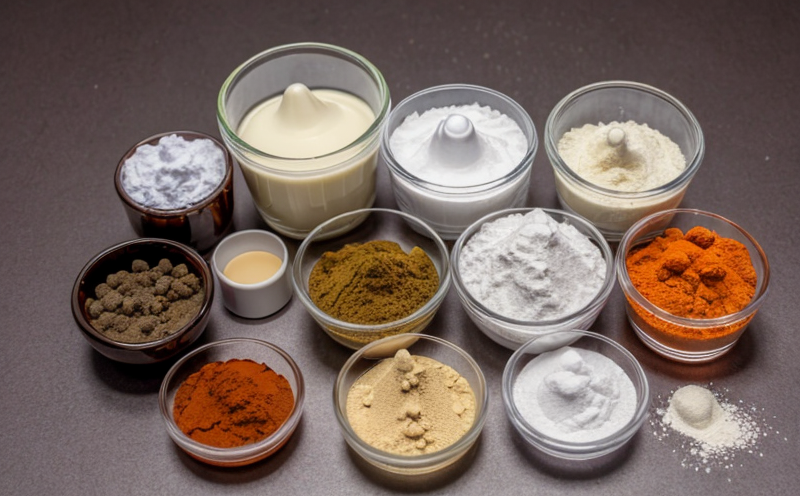Excipient API Compatibility Testing
In the pharmaceutical industry, excipients play a crucial role in ensuring that APIs (Active Pharmaceutical Ingredients) are stable and perform as expected within their formulations. Excipient API compatibility testing is essential to evaluate how an excipient interacts with an API during development and manufacturing processes. This service ensures that the excipient does not degrade or alter the stability of the API, thereby maintaining the efficacy and safety profile throughout its lifecycle.
The importance of this testing cannot be overstated, especially given the regulatory requirements set forth by organizations such as the FDA (United States), EMA (European Medicines Agency), and WHO (World Health Organization). Compliance with these standards is critical for pharmaceutical manufacturers to ensure that their products meet stringent quality criteria.
The goal of excipient API compatibility testing is to identify potential incompatibilities early in the development process. This proactive approach helps prevent costly delays later on, reduces risks associated with suboptimal formulations, and ensures that the final product meets all regulatory requirements. By conducting thorough compatibility studies, laboratories can provide robust data that supports informed decisions regarding ingredient selection.
Excipients are often chosen based on their ability to enhance solubility, improve flow properties, or stabilize APIs against adverse conditions like moisture exposure. However, certain excipients may interact unfavorably with specific APIs under particular environmental stressors or processing conditions. Identifying these interactions early in the development process allows for adjustments to be made before large-scale production begins.
For instance, some excipients contain small amounts of acidic groups that can catalyze reactions between certain APIs and water molecules leading to hydrolysis. Other excipients might release gases upon dissolution which could cause instability issues in solid dosage forms. Understanding these interactions early on enables manufacturers to select appropriate excipients or modify formulation approaches to mitigate risks.
Another key aspect of this service involves understanding how different excipient concentrations affect API behavior within the final product. For example, varying levels of lactose monohydrate can influence both dissolution rates and particle size distribution in tablets containing APIs like ibuprofen. By studying these relationships, manufacturers can optimize their formulations for improved performance.
- Ensures Regulatory Compliance: Adherence to international standards such as ISO 17820:2019 and ASTM E1456-13 ensures that all tests conducted meet the highest industry benchmarks.
- Reduces Development Time: Early identification of potential issues allows for rapid course correction during development, saving valuable time and resources.
Applied Standards
To ensure consistency and reliability in our testing methodologies, we adhere strictly to relevant international standards including ISO 17820:2019, ASTM E1456-13, and EN 16762. These guidelines provide a framework for conducting rigorous compatibility assessments that are recognized worldwide by regulatory bodies.
Our team of experts ensures that every aspect of the testing process follows these standards meticulously. From sample preparation to data analysis, we maintain strict adherence to best practices outlined in these documents. This commitment not only enhances the credibility of our results but also helps pharmaceutical companies comply with global regulatory requirements seamlessly.
Scope and Methodology
The scope of excipient API compatibility testing encompasses various parameters including moisture content, particle size distribution, solubility, stability under accelerated conditions, and interaction studies. We employ advanced analytical techniques such as differential scanning calorimetry (DSC), thermal gravimetric analysis (TGA), and rheological measurements to gather comprehensive data on the physical and chemical properties of excipients.
For each test run, we start by selecting an appropriate set of excipients based on their known interactions with APIs. Specimens are then prepared according to standard protocols before being exposed to controlled environments designed to simulate real-world storage conditions. Over time, changes in physical and chemical properties are monitored closely using state-of-the-art instrumentation.
In addition to these core tests, we also conduct stability studies under accelerated aging programs to assess long-term compatibility between excipients and APIs. These extended exposure experiments help predict potential issues that might arise during shelf life or upon formulation changes. The data collected from these analyses provides valuable insights into the longevity and reliability of the final product.
Once all tests have been completed, our team compiles detailed reports summarizing findings. These documents include raw data, interpretative comments, recommendations for future actions, and compliance statements regarding adherence to applicable standards. Our goal is always to deliver thorough, accurate information that supports informed decision-making throughout the product lifecycle.
Environmental and Sustainability Contributions
- Eco-friendly Practices: By ensuring that excipients do not degrade APIs during development stages, we contribute to reducing waste associated with failed batches. This reduces the environmental impact of manufacturing errors.
- Sustainable Resource Utilization: Our tests help identify optimal excipient concentrations which can lead to more efficient use of raw materials without compromising product quality. This promotes sustainable resource utilization practices within the industry.





